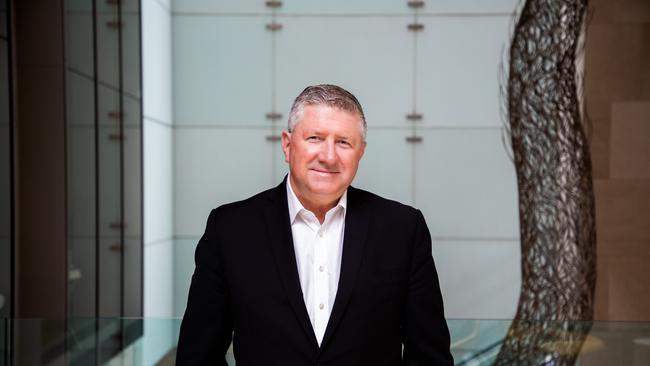Partnerships are critical but agencies must be braver
Partnerships will play a critical role for agencies going forward but the success still lies in being brave, according to Omnicom Advertising chief Troy Ruhanen.

Partnerships such as Telstra’s +61 model are in demand and will play a critical role for agencies in future, according to Omnicom Advertising Group global chief executive Troy Ruhanen.
Mr Ruhanen spoke exclusively to The Growth Agenda while in Sydney to present at SXSW Sydney with Telstra chief marketing officer Brent Smart. He said the pressure on agencies to offer a broader range of services would lead to a rise in more partnership models.
“Partnerships are critical going forward, because it’s hard to deliver everything,” he said.
“We have some amazing relationships, like the work we do on Telstra here in Australia is ridiculously good. So you’ve really got to find your right partners and really invest into that relationship.”
The Australian expat, previously president and chief operating officer of TBWA Worldwide, said he was meeting with Omnicom Media Group Asia-Pacific chief executive Tony Harradine to discuss more opportunities for partnerships. He was also using the trip to meet with the local Omnicom creative networks BBDO, DDB and TBWA, which now sit together under the new global OAG organisation.
Mr Ruhanen said while some markets had already undergone mergers and consolidation, there were no plans in place for Australia at this stage.
But he confirmed regional structures and roles would be announced shortly and would take effect from January 1.
“No choices have been made and we haven’t rolled out the structure yet,” he said. “It’s really always about: What does the market need? What’s really the capacity for the market and for the agency brands? What’s the health of the agency brands?
“The Omnicom strategy is about choice and I think that’s our differentiator. We are able to adapt to the market and flex to client needs, versus having this one playbook and that’s it.
“There will be much more sharing of tools and platforms than there has been historically.”
Much like the agency structures that will be adapted for each market, Mr Ruhanen said partnerships will also take a bespoke approach. “It’s about listening to the client and what they really need,” he said.
Mr Ruhanen cites TBWA’s longstanding relationship with Apple through the TBWA Media Arts Lab model, as well as the +61 partnership, in which Omnicom agencies TBWA and OMD partner with independent creative agency Bear Meets Eagle On Fire to work on the Telstra advertising account.
“It’s all about really tailoring it versus, OK, let’s replicate this, which is what consultants do,” he said. “It’s in their interest, that’s what they’re selling, whereas I’m interested in long-term relationships. We’re much more client-centric.”
According to Mr Ruhanen, the +61 partnership is attracting a lot of attention from other clients keen for their own versions. “It’s going phenomenally well. We’ve got clients that are asking about it now, because they see the work, they see the results.
“We have great chemistry between all of us, we have huge trust between us and we understand who’s doing what, how we are sharing together.
“TBWA provides all the tools, all the insights, all the capabilities, it works with OMD to do the connections planning. All the agencies sit at the table together and Brent has one partner to go and talk to. It’s really simple.
“When you look at what we are doing there and see the impact, the results are incredible. But it goes against the formula of what is being advised by a lot of these marketing experts right now.”
Pressed on his thoughts on the local industry, Mr Ruhanen said he felt the bravery that was once a trademark of Australian advertising seemed to have disappeared.
“I don’t think people are working hard enough to be distinct,” he said. “Distinction is more important than just matching luggage and everything else. There’s a little less bravery here and I’m surprised about that. I think there’s maybe a bit more fear and a bit more sheeplike behaviour.
“The conversation around media efficiency is over the top. The way to be the most efficient with media is to do more distinct work, because the more distinct work actually works four times better in the media.
“So you can actually spend less, by doing far greater work, or you can spend the same and get a disproportionately better result.
“I just think that everyone is lazy, or scared thinking, and honestly it’s wasteful.”
Mr Ruhanen also took aim at the local culture of harshly critiquing the work in the market, suggesting it was contributing to a lower overall standard.
“What we need are more people who are celebrating great work that then can influence clients to do that kind of work, because Australia being 11th in the Cannes rankings is not right. Concentrate on promoting great work and promoting great people … doing great things, and stop trying to tear the agency world down. You’re not helping your future, right?”


